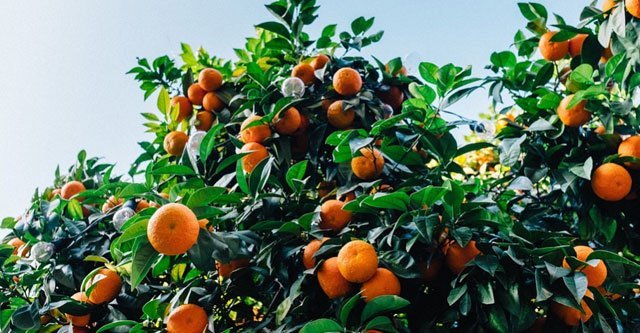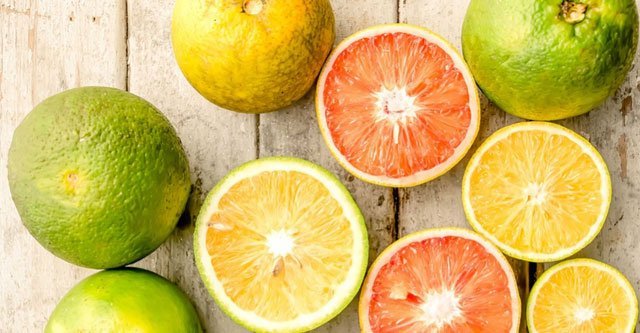Last Updated on June 6, 2021 by Dr Sharon Baisil MD
Fruits are one of the easiest choices to keep your body healthy. They are sweet, delicious, juicy, and very nutritious. Fruits are among those foods that are filled with a variety of nutrients such as vitamins, fibers, minerals, water, etc., all in one.
Thus, fruits make a perfect fit for healthy diets. But what about people with diabetes? Are fruits good enough for them? Can they have different fruits without thinking twice about their impact on their body’s blood sugar levels?
Well, fruits can often be questionable for anyone with blood sugar issues. It is mainly because of their sweetness. Fruits are said to have sugars, which are direct carbohydrates. Hence, making it a difficult option for one’s diabetic meal plans.
But are there no good options? Let us have a look at these topics today.
- Are citrus fruits good for diabetes?
- What are the benefits of citrus fruits?
- What are the daily limits for citrus fruits for diabetics?
- Can there be any side effects of citrus fruits?
And so on.
Well, I am sure that the answers to these will fascinate you and help you make better choices regarding having a healthy and diabetic-safe diet.
Are Citrus fruits good for Diabetes?

Well, to clear your confusion at once, Citrus fruits are amazing for diabetic health. They have been classified as one of the superfoods for diabetes by several international diabetic associations and experts.
The impacts of citrus fruits on one’s health are truly endless and can lower blood sugar.
There is a wide range of fruits under the citrus family that you can choose from. They are sweet and tangy with the right nutrients and safety over one’s health too.
One of the best things about citrus fruits is their fiber content. Fruits, as we all know, have sugars. These sugars are carbohydrates and are the major reasons for the rise in one’s body’s blood sugar levels.
But when it comes to citrus fruits, they also have these sugars. But what makes it harmless is the availability of dietary fiber in citrus fruit.
Fiber is a good form of carbohydrate as it is a complex carbohydrate. It nullifies the high effects that sugar can cause on the diabetic body and the blood glucose levels.
In addition to that, fiber has greater benefits of improving one’s metabolism as well. Diabetes is a condition that is caused by and also affects the improper functioning of the metabolism. Hence, it is crucial to keep the metabolic functioning healthy to ensure the management and control of this blood sugar disorder.
The fiber in the body helps to slow the pace of digestion. This, in turn, creates a slow-release and absorption of nutrients in the body. In this way, the release of sugar from the food intake also slows down.
Therefore, the risk of sudden raises in the blood sugar levels decreases. This helps the body to retain normal blood sugar levels.
Moreover, citrus fruits are rich sources of vitamin C. This is a crucial vitamin that helps in maintaining a strong immune system. It protects the body from harmful diseases and strengthens it.
Other vitamins, antioxidants, and minerals found in citrus fruits also benefit the diabetic body. They help keep the bone, eyes, muscles, blood circulation, cardiovascular functions, etc.
We will look at the many other benefits of citrus fruits in detail as we move ahead.
What are the Glycemic Index of Citrus fruits?

The glycemic index is an easy and effective measure to identify safe and unsafe foods for one’s healthy diet. It is a measure of the carbohydrates in foods that tells you how easily and quickly the consumption of a specific food will raise your blood sugar levels.
The glycemic index measure uses a scale from 0 to 100. Foods are divided into three important glycemic categories based on their rankings on this scale.
The three categories of the glycemic index are as follows:
| Sl. No. | Glycemic Index categories | Glycemic Index ranges |
| 1. | Low Glycemic Index (safe for diabetics) | 0 to 55 |
| 2. | Medium Glycemic Index (safe if taken in controlled quantities) | 55 to 69 |
| 3. | High Glycemic Index (unsafe for diabetics) | From 70 and above |
When it comes to citrus fruits, usually all of them fall under a low glycemic index. Their glycemic index ranges from 0 to 55, meaning they are safe for diabetic consumption.
Some of the common citrus fruits and their glycemic index are listed below:
| Sl. No. | Types of fruits | Glycemic index |
| 1. | Orange | 45 |
| 2. | Lemon | N/A |
| 3. | Lime | 32 |
| 4. | Grapefruit | 25 |
| 5. | Mandarin orange | 47 |
| 6. | Kinnow fruit | 40 – 45 |
Thus, it is clear that citrus fruits are amongst the top best foods for diabetes. They can be had without worries. They will have many benefits on the diet and health of the person.
Adding citrus fruits can also reduce the overall glycemic index of the meals that you consume throughout the day.
These fruits are fulfilling as well as help to satisfy the sweet cravings of diabetic patients. Hence, you can have citrus fruits without having to compromise on your favorites.
But there is a balance in everything. Similarly, this is a good limit to having citrus fruits as well. Let us discuss this limit to ensure its better inclusion in your diabetic-safe meal plans.
What is the daily limit for citrus fruits for diabetic patients?

Even though we looked at and verified the various goodness of citrus fruits on the health of diabetic patients, it is still important to notice some limits that need to be followed.
When it comes to maintaining the body’s blood sugar levels, it is essential to keep a check on your food portions. Despite no considerable harm, no one should resort to excess quantities of safe foods either.
Here are some daily limits and tips you can follow regarding your decisions of citrus fruits:
- Consume no more than one fruit: one sweet lime, one kinnow, one orange, in a sitting. The quantity must be lower than one whole fruit in the case of a grapefruit.
- You can have these fruits as your morning, evening, or bedtime snacks. Make sure not to include these fruits more than once a day, which is a maximum of one citrus fruit in a day only.
- You may even make salads on these fruits and have a mix of nutrients enrich your metabolism.
- Resist fruit juices or canned drinks. They are higher in carbs and calories and also have added sugars. Therefore, it is advised not to have fruit juices. You can instead stick to the whole fruit.
Now you are aware of how to include these fruits to benefit yourself. But what are the benefits that you can receive from the consumption of citrus fruits?
Let us have a detailed look at the advantages of eating citrus fruits.
What are the benefits of eating Citrus fruits in Diabetes?

Until now, we talked about the safety of citrus fruits and their recommendations in one’s diet. Let us now know why these are such recommended fruits and additions to maintain a healthy body.
Below is a list of reason why you should add citrus fruits to your everyday meals:
- Citrus fruits are low in calories and are wonderful for weight loss. If you are looking for additions to your diet that will encourage losing those pounds, then citrus fruits are the answer.
- The presence of flavones in oranges and grapefruits is said to offer protection to women’s heart health. It can help to reduce the risks of ischemic strokes in women.
- The many flavonoids, antioxidants, anti-inflammatory components, etc., also help protect the body against the risks of developing cancer. It has been observed that a regular supply of citrus fruits to the diet can reduce the risks of esophageal, ovarian, and certain other types of cancers.
- Vitamin C found in citrus fruits has several benefits. They also nourish and protect the eyes and increase vision health. It helps in reducing age-related vision issues.
- Vitamin C also helps to maintain blood pressure and the hormonal secretions in the body. These are the major reasons for stress formation. Thus, eating citrus can also help you combat stress.
- Vitamin C and B6 are among the highest available nutrients in citrus fruits that help keep the immune system very strong. There are other plant compounds, anti-bacterial, anti-cancer, anti-inflammatory, anti-fungal, and anti-oxidant qualities in this fruit that help protect the overall body. Also keeps away issues of cold.
- They are rich sources of fiber and prevent stomach issues like – constipation, indigestion, etc.
- Vitamin C is also very effective in keeping the skin and hair healthy. It helps in anti-aging and newer collagen formation. Moreover, they also help with reducing hair issues such as breakage, hair-fall, and dandruff.
- Citrus fruits are nourishing as well as hydrating. They can prevent the occurrence of dehydration, kidney stones, etc.
Are there any side effects?
Well, there are certain things that you should keep in mind about these fruits:
- Citrus fruits in farms are prone to fungal growth. This can cause allergies and complications if not paid attention to.
- To keep away the fungal attacks, the citrus fruits are sprayed with pesticides. This can be toxic for the eyes, kidney, skin, liver, etc.
- Citrus fruits can aggravate conditions such as acid reflux.
References
- https://pubs.rsc.org/en/content/articlelanding/2017/fo/c7fo00212b/unauth#!divAbstract
- https://www.sciencedirect.com/science/article/abs/pii/S1751991815001825
- https://www.mdpi.com/2072-6643/12/10/2907
- https://www.sciencedirect.com/science/article/pii/S2213453014000044
- https://onlinelibrary.wiley.com/doi/abs/10.1002/ptr.2077
- https://www.sciencedirect.com/science/article/abs/pii/S1871402112000094
- https://pubs.rsc.org/no/content/articlelanding/2014/fo/c3fo60700c/unauth#!divAbstract
- https://www.jstage.jst.go.jp/article/bpb/29/3/29_3_588/_article/-char/ja/
- https://www.sciencedirect.com/science/article/pii/S0378874114004243
- https://link.springer.com/article/10.1186/s13065-015-0145-9
- https://www.canr.msu.edu/news/enjoy_citrus_fruits_as_part_of_your_diabetes_meal_plan





